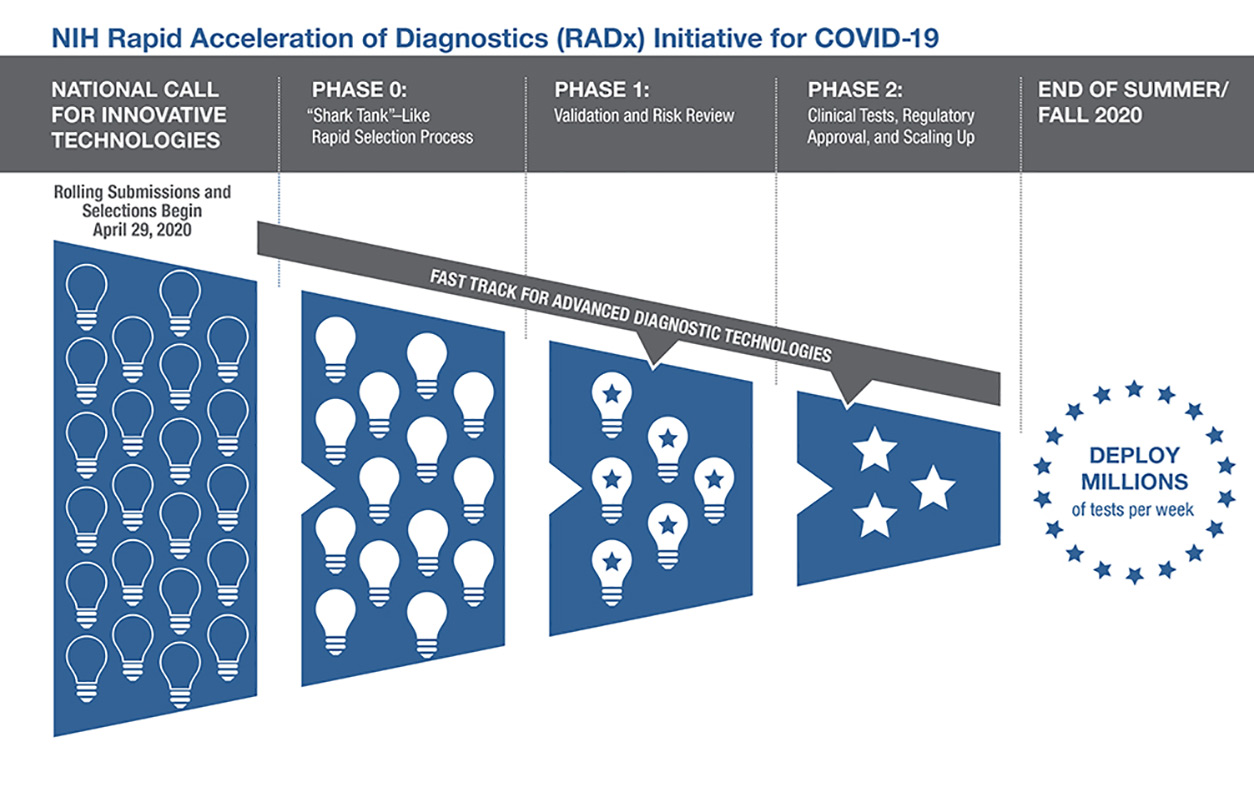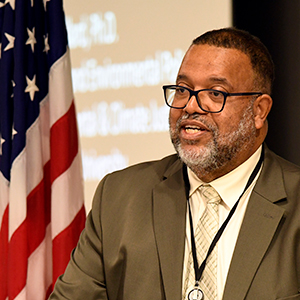A National Institutes of Health (NIH) initiative aims to improve COVID-19 outcomes among low-income and minority individuals by increasing the availability and uptake of testing. Socioeconomic issues and exposure to pollution can heighten their vulnerability to the disease.
Rapid Acceleration of Diagnostics (RADx) — a $1.5 billion effort to spur mass production of low-cost, reliable COVID-19 testing tools — includes a component geared toward underserved populations, called RADx-UP. NIEHS and other NIH institutes and centers are encouraging researchers across the country to participate.
 Persistent social and health disparities among some people in minority groups increases their health risks related to COVID-19, according to the Centers for Disease Control and Prevention.
Persistent social and health disparities among some people in minority groups increases their health risks related to COVID-19, according to the Centers for Disease Control and Prevention.Helping minority groups, homeless people, and others
“Congress is especially excited about this program because it’s about getting innovative testing into the communities that need it most,” said NIEHS Director Rick Woychik, Ph.D., during the June 2 meeting of the National Advisory Environmental Health Sciences Council. “[RADx-UP] is designed to get at least $200 million on the street by the end of December — record pace for NIH,” he said, adding that an additional $300 million will be invested during the following two years.
 Woychik said that he believes many NIEHS centers, programs, and grantees would qualify to apply for RADx-UP funding. (Photo courtesy of Steve McCaw)
Woychik said that he believes many NIEHS centers, programs, and grantees would qualify to apply for RADx-UP funding. (Photo courtesy of Steve McCaw)“This will happen by funding emergency competitive revisions to existing grants [to] support large-scale testing [and] quickly reach underserved, poor, and vulnerable populations,” said Woychik. Such communities include low-income and minority individuals but also nursing home residents, pregnant women, the homeless, incarcerated people, and others.
Community-engaged research
NIH announced three Notices of Special Interest on June 12, and one Request for Applications on June 26. Beyond increasing testing, another goal is to understand factors that may increase susceptibility to COVID-19.
- NOT-OD-20-121 — “Encourages community-engaged testing research projects [to] supplement large-scale networks, consortia, or centers, [and] will examine SARS-CoV-2 infection patterns and efforts to increase access and effectiveness of diagnostic methods.”
- NOT-OD-20-120 — Similar to the notice above but intended for individual researchers with projects that involve collaboration or partnership with specific communities.
- NOT-OD-20-119 — “Seeks research to understand the social, ethical, and behavioral implications of COVID-19 testing in these populations.”
- RFA-OD-20-013 — Funding opportunity for a Coordination and Data Collection Center that advances RADx-UP. Among other things, the center will identify high-risk communities in which increased testing may be beneficial.
“Key to the success of targeted novel testing programs will be strong partnerships with community groups, health care systems, and other stakeholders such as state and local health departments,” said NIEHS Acting Deputy Director Gwen Collman, Ph.D., who served on an NIH-wide working group to develop the funding announcements. “Conducting community-engaged research focuses on understanding factors that promote, or are barriers to, getting the population tested for SARS-CoV-2.”
Collman is the NIEHS point of contact for these efforts, and she can be reached by email at collman@niehs.nih.gov.
“At this particular moment, where we’re all really focused on the fact that our nation is still riddled with health disparities and health inequities, and even racism, [we] should be doing everything we can to try to take our scientific capabilities and apply them to finding solutions,” said NIH Director Francis Collins, M.D., Ph.D., during a June 11 webcast (see sidebar). “So, we’re all pretty excited about RADx-UP.”
(Jesse Saffron, J.D., is a technical writer-editor in the NIEHS Office of Communications and Public Liaison.)










